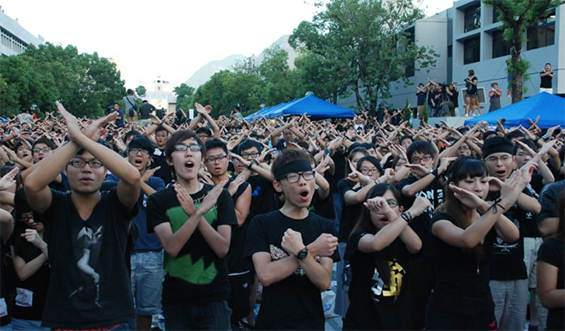 (Image: Wikimedia, Creative Commons)
(Image: Wikimedia, Creative Commons)
Mainland and local politicians are calling the idea of Hong Kong becoming independent not only impossible but also against the special administrative region’s (SAR) interests.
Debate over the issue came as the result of an article in the latest edition of the publication Undergrad in which a number of students at Hong Kong University suggested the Chinese territory should gain independence by the year 2047.
According to Qiao Xiaoyang, head of the National People’s Congress Law Committee, the idea of independence is an impossible one. He added that he could not see a way for it to happen, writes Kenneth Lau for The Standard.
The article suggests that Hong Kong should become an independent sovereign state at the end of the Sino-British Joint Declaration, which requires the territory to remain under Chinese rule for 50 years starting with the takeover in 1997, writes Stuart Lau for The South China Morning Post. Two articles on the subject were published in the monthly magazine that pushed for the country to become an independent country as well as a member of the United Nations.
“Even though Hong Kong doesn’t have the conditions to become independent yet … whether independence is viable or not is not our main concern,” it read. “The main point is whether Hong Kong should become independent.”
The article continued to say a democratic government should be created, as well as the nation drafting its own constitution.
While Secretary for Justice Rimsky Yuen Kwok-keung stated he did not agree with the ideas written in the article, he added that a discussion should begin concerning the future development of the territory, reports Alan Wong for The New York Times.
Yuen went on to say that he does not believe “one country, two systems” needs to change. However, he noted that the authors appeared to be looking for a way for the territory to become a democracy. If that is the case, Yuen said an improvement along the lines of “one country, two systems” would be “more pragmatic” and a “possible” way to create democracy within Hong Kong.
Executive councilor Bernard Chan added that although the Basic Law does not say whether or not “two systems” needs to be maintained as of 2047, it does say that “one country” will be required to continue. “The central government would definitely not allow other options.”
Chan went on to say that trust needed to be built with the students, saying they need a better understanding of the Basic Law.
Meanwhile, Chief Executive Leung Chun-ying said it was “common sense” that Hong Kong would remain a part of China after 2047, saying it has been this way for a long time.
Hong Kong’s future has come under scrutiny lately as local youth are beginning to hold anti-mainland views with arguments that China has too much political influence over the territory.
Undergrad former editor-in-chief Marcus Lau Yee-ching, who put out the issue with the articles in question, stood up for them in an interview with RTHK.
“We acknowledge that Hong Kong has no ability and criteria to be independent now, but no one knows about the situation in 2047,” he said. “We need to table it to the public for discussion.”




